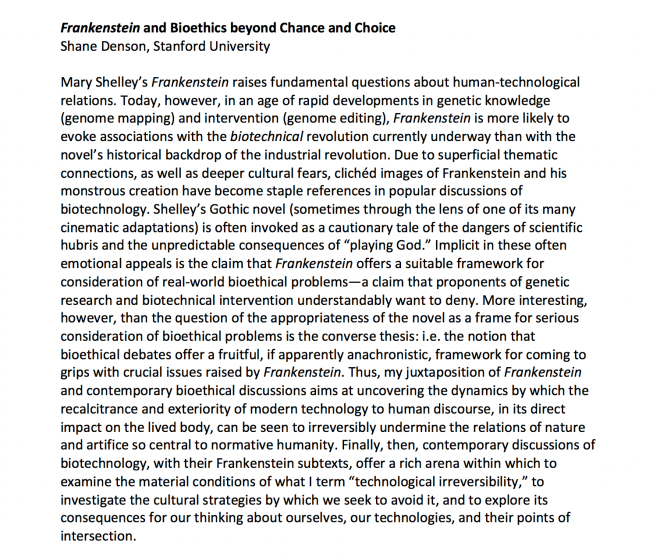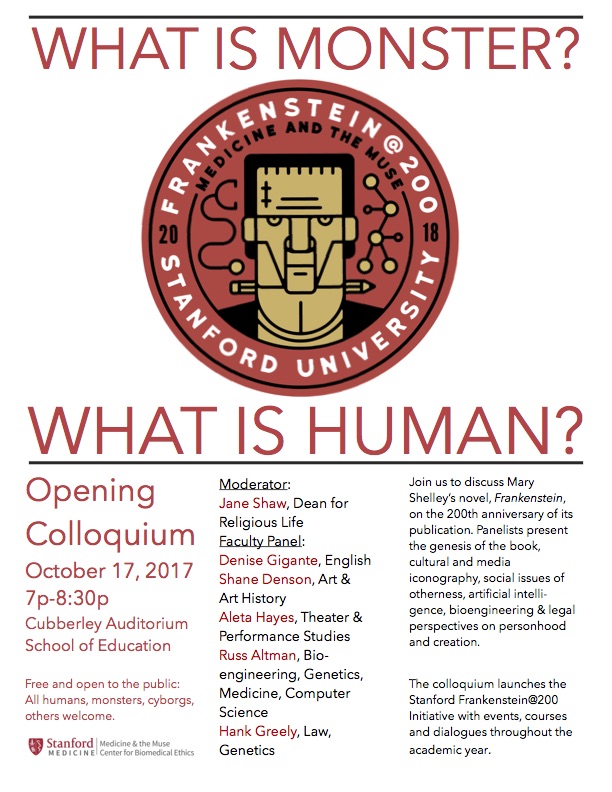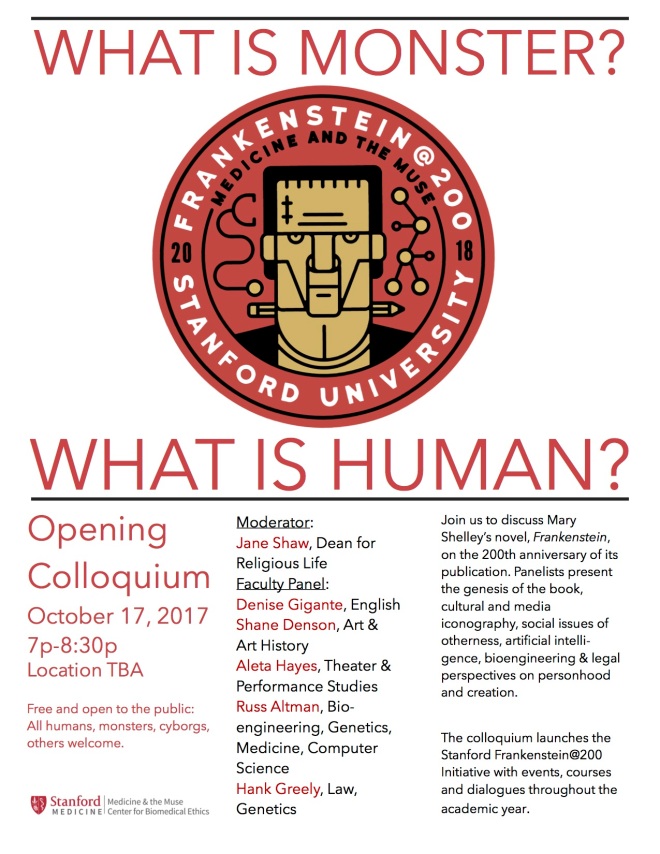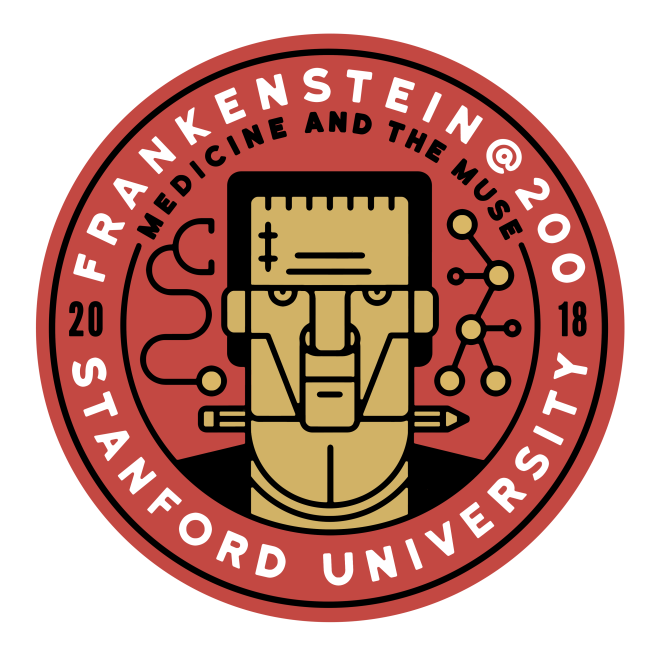
The 2018 International Health Humanities Consortium Conference will be held at Stanford University from April 20-22, 2018. The keynote speakers are:
Alexander Nemerov
Professor, Art and Art History at Stanford UniversityLester Friedman
Professor, Media and Society at Hobart and William Smith CollegesAlvan Ikoku
Assistant Professor, Comparative Literature and Medicine at Stanford UniversityCatherine Belling
Associate Professor, Feinberg School of Medicine at Northwestern University
In addition, there will be a number of great events around campus. You can find more information here.
I will be participating in the conference in two ways:
First, on Friday, April 20 (2:30-3:30pm in McMurtry 115) I will be presenting a screening session of videographic works related to “Frankenstein & Film.” I will be showing a few of my own pieces (which you can see here and here), as well as works by video essayists like Allison de Fren, alongside commercial “making of” videos, art film reimaginations, and other moving-image forms that treat the history of Frankenstein films from Thomas Edison’s 1910 production up to the present day.

Second, on Sunday, April 22 (11:15am), I will be presenting a paper titled “Frankenstein and Bioethics Beyond Chance and Choice.” The paper draws upon and rethinks ideas that I put forward in one of my very first publications: “Frankenstein, Bioethics, and Technological Irreversibility.” That paper, published in 2007, can be found here.


